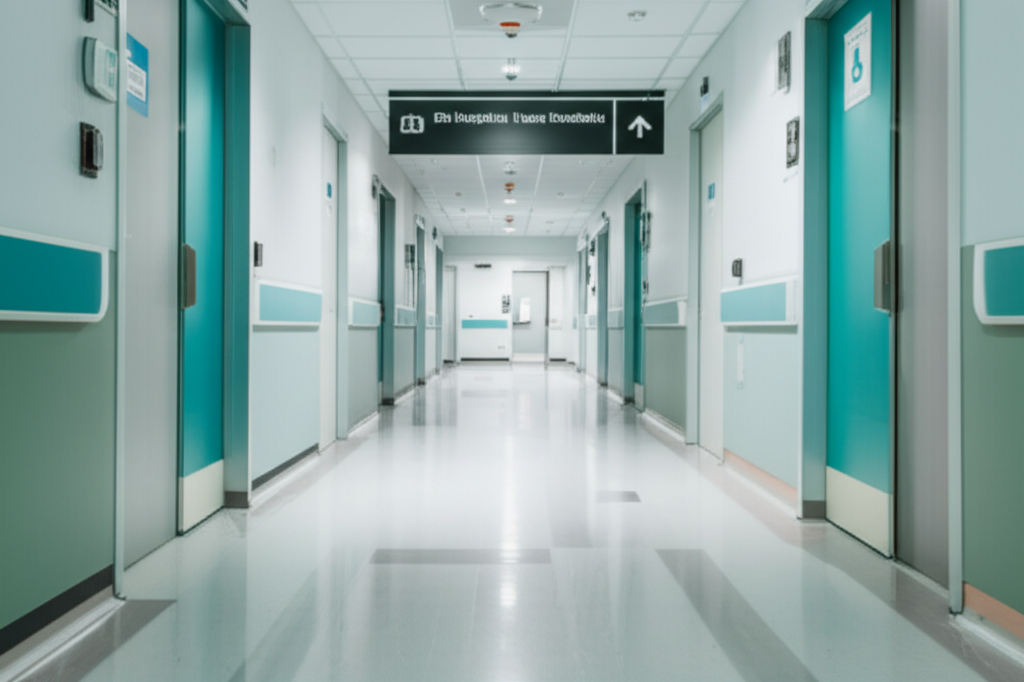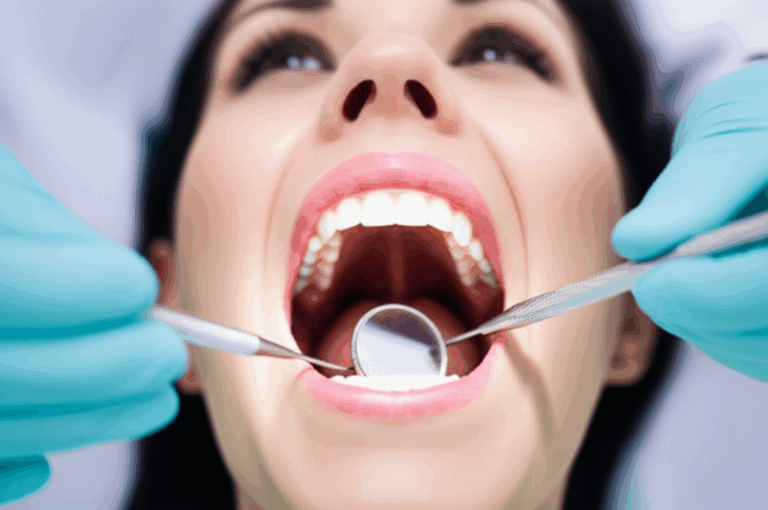
Do Hospitals Have Dentists? A Simple Guide to Hospital Dental Services
Ever had terrible tooth pain in the middle of the night and wondered, “Are there even dentists in hospitals, or am I stuck?” You’re definitely not alone. Lots of people have no idea what to do when a dental problem hits and their usual dentist isn’t around.
Parents, people who struggle with their health, or anyone who thinks about how dental care and medical care meet often get confused or stressed about this stuff. Maybe you’re just worried or need straight answers.
Let’s make this simple. I’ll answer your big questions, show when hospitals have dentists around, what they do—and don’t do—and what you should do in emergencies. The goal: give you clear, kind advice so you know when the hospital is part of taking care of your teeth.
In This Article
- The Short Answer: Yes, But Not for Regular Care
- What Dentists and Dental Work Do Hospitals Provide?
- Why Would You Need a Hospital for Dental Care?
- What Hospitals Don’t Usually Do for Dental Problems
- How to Get Dental Help at a Hospital
- Costs and Insurance for Hospital Dental Work
- Conclusion: When to Go to a Hospital for Your Teeth
The Short Answer: Yes, But Not for Regular Care
Let’s make it simple: Yes, hospitals have dentists—but it’s not for things like cleanings or simple fillings like at your regular dental office.
Hospitals are mainly for emergencies, tough cases, and people with special health needs. They can do surgeries, treat infections, and fix some serious problems. But if you just want a cleaning or have a small cavity, go to your normal dentist.
Think of the hospital as a “dental emergency room” rather than where you go for your routine tooth checks.
What Dentists and Dental Work Do Hospitals Provide?
There are a few different dental experts you might find in hospitals, each handling different jobs like doctors do with their specialties.
Oral and Maxillofacial Surgeons (OMFS)
These dentists work with:
- Face Injuries: Broken jaws, cheek bones, or injuries from falls, crashes, or fights.
- Hard Tooth Extractions: Wisdom teeth stuck deep, teeth connected to large lumps or bad infections.
- Jaw Surgery: Fixing bite problems, jaw joint (TMJ) issues, or birth defects like cleft lip.
- Oral Pathology: Removing lumps or checking for cancer.
Big hospitals, especially those tied to universities or kids’ hospitals, often have teams of these oral surgeons for bad accidents.
Emergency Dental Care (ER vs. Special Dental Areas)
The ER deals with emergencies, but not every ER has a dentist always ready. Usually, this happens:
Good times to go to the ER:
- Bad, constant tooth or face pain
- Swelling that spreads to your eye, neck, or blocks breathing/swallowing
- Lots of bleeding or damage to mouth and jaw
- Signs of serious infection: high fever, chills, confusion, trouble breathing
What the ER team can do:
- Figure out what’s wrong and help your pain
- Give medicine for infection, or drain a dangerous abscess
- Call an oral surgeon for bad injury
- Tell you to come back for more dental work later
What the ER usually can’t do:
- Fill a cavity, pull a regular tooth, fix dentures or crowns
- Give routine tooth cleanings
- Replace a lost tooth (unless it’s part of a big accident that needs surgery)
A few big hospitals have emergency dental clinics with dentists, but this is not common.
Special Needs and Children’s Dentistry
For little kids and people with complex health issues, hospital dental teams help when regular dental care isn’t safe or possible.
- Children’s hospitals may have special kids’ dental areas for kids with birth problems, a lot of health issues, or those who are too scared.
- Special needs dentistry: People with disabilities or strong fear sometimes need to be asleep (anesthesia) for dental work, which is safest in a hospital.
- Under anesthesia: Young kids with lots of tooth decay, or people who just can’t get dental work while awake, may need this.
Here, hospitals let doctors and dentists work together in case something goes wrong.
Dental Care for People With Health Problems
Some people have health problems that make dental treatment hard or risky anywhere but a hospital.
- Cancer patients: Before chemo or other tough treatments, dentists check for infection risks.
- Heart issues, organ problems, bleeding concerns: Hospitals can safely handle dental care when there’s a risk with certain medicines or bleeding.
- Patients staying in the hospital long-term sometimes need continuing dental support.
Hospital Dental Clinics and Training Hospitals
Hospitals connected to dental schools (often at universities) run clinics where dentists get more training and are watched by experts.
What’s good about these?
- Can do tough dental work for less money, since dental residents are learning
- Can handle patients with medical problems, working with other doctors in the hospital
Veterans hospitals (VAs) do the same for many qualified veterans.
Why Would You Need a Hospital for Dental Care?
Here’s when a trip to the hospital for a dental problem makes sense:
1. Serious Injury
- Examples: Broken jaw, lost or shoved-in teeth, deep cuts, car or sports injuries.
- Why hospital?: They can handle major bleeding, broken bones, stitches, and surgery.
2. Very Bad Infections
- Example: Abscess spreading near your airway, eye, or brain.
- Symptoms: Swelling that makes it hard to breathe or swallow; very high fever; confusion.
- Why hospital?: Only hospitals give strong medicine through an IV, do emergency surgery, or help you breathe if it gets that bad.
3. Big Surgeries
If you need dental surgery while you’re asleep (general anesthesia), or if you have bleeding or blood problems, a hospital is the right place. This could be for jaw surgery, removing big lumps, or safely pulling teeth in people who are very sick.
4. People With Tough Health Problems
Someone with a bad heart, diabetes, a transplant, or weak immune system might need dental treatment in the hospital, so doctors can watch them closely.
5. Special Needs Patients
Anyone who can’t sit through dental work awake, is extremely nervous, or has mental or developmental conditions, may need dental treatment in a hospital, especially if they need anesthesia.
6. Your Dentist Can’t Do It
Some dental work is just too risky for a regular dental office, so hospitals step in with teams who can keep you safe.
What Hospitals Don’t Usually Do for Dental Problems
Even though it seems like hospitals can do anything, they don’t handle every dental job. Usually, hospitals don’t do:
- Regular cleanings and check-ups: That’s for your main dentist.
- Fillings and small repairs: Unless it’s needed as part of bigger treatment for special patients.
- Cosmetic work: No teeth whitening or things done just to make teeth look nice.
- Braces: Unless it also helps with serious jaw or face problems.
Bottom line: For day-to-day problems like a small cavity, tooth whitening, or simple crowns (which are made by a dental ceramics lab), go to your usual dentist.
How to Get Dental Help at a Hospital
Who do you call, and what do you do, when you or someone you care about needs dental work in a hospital?
1. For Emergencies
- If you have very bad pain, swelling, or injury, head straight to the ER or call for help. Hospitals are always ready for the worst emergencies.
2. Get a Referral
- For less urgent but complicated problems, your dentist or doctor can send you to a hospital specialist, like for oral surgery or dental work under anesthesia.
3. Call the Hospital Dental Clinic
- Dental clinics in big hospitals, especially teaching ones, will sometimes let you contact them for appointments—great for kids, people with medical needs, or tough cases.
4. VA Hospitals
- If you’re a veteran, see if you can get dental care at the VA (it depends on your service and health status).
Costs and Insurance for Hospital Dental Work
Let’s be real: bills from the hospital or dentist can be scary.
Hospital Bills Compared to Dental Office
- At the hospital, charges may go to your medical or dental insurance (or both). You might get bills from the dentist, hospital, and/or for anesthesia or staying overnight.
- At a regular dentist, only your dental insurance is used.
What Insurance Covers
- If the dental problem is a real emergency and could harm your health (like a spreading infection), your medical insurance might help pay.
- Dental insurance usually only helps with basic stuff—cleanings, fillings, and sometimes pulling teeth—but not hospital fees or being put to sleep.
Know What Your Insurance Says
Every insurance plan is different. Sometimes, people are surprised to find their dental emergency in the hospital isn’t covered. Always ask your insurance company what’s paid for.
- Medicaid and Medicare give some help, but coverage for dental work in the hospital changes based on where you live and your plan.
- No insurance? Hospitals have to treat truly dangerous emergencies, but you’ll still get a bill after.
The Cost
- A visit to the ER for tooth pain can cost $500-$1,000—just to get checked and for pain medicine, not for the lasting fix.
- Dental clinics at hospitals tied to dental schools often cost less than an ER visit.
Conclusion: When to Go to a Hospital for Your Teeth
So, when should you pick the hospital over your usual dentist?
Quick Tips
- Hospitals have dentists (and oral surgeons), but mostly for the big emergencies, not regular care.
- Go to your regular dentist for cleanings, fillings, crowns, bridges, and dentures.
- Go to the hospital if you have:
- Bad pain or swelling
- Major injuries or broken jaws/teeth
- Dangerous infections with fever or trouble breathing
- Special needs or health problems that make anesthesia or extra care necessary
Stay Healthy
- See your dentist regularly. Stopping problems early is always best.
- Know your health risks. If you have special needs or are sick, talk to your dentist about options before things get bad.
- Understand your insurance. Don’t let bills surprise you.
- For real emergencies, don’t wait. Hospitals are ready to help.
Still not sure?
Ask your dentist, doctor, or call the hospital’s dental department. When it comes to your health—even your teeth—no question is silly.
Bonus: Fast Facts About Dental Care in Hospitals
| Category | Key Fact | What It Means |
|---|---|---|
| Dental ER visits in U.S. yearly | 2.1 million | Many could have gone to a dentist sooner |
| % of avoidable dental ER visits | About 79% | Shows gaps in regular dental care |
| Main hospital dental services | Emergencies, surgery, bad infections, special needs | Oral surgeons and special teams do most of the work |
| Cost for ER dental visit | $500-$1,000+ | Mostly for pain relief, not fixing the real problem |
| Kids needing dental anesthesia rise | 19% more between 2011-2016 | Younger or special needs kids need hospitals more |
| Special needs dental patients | 2.5x more likely to need anesthesia in hospital | Hospitals have staff for these patients |
| University/VA hospitals offer | Surgeries, reconstruction, special care, plus some regular dental work | Can be cheaper than the ER and cover a wide range |
For more details about crowns, bridges, and fake teeth, a china dental lab works with worldwide clinics, and digital dental lab technology is making modern dental repairs better and more comfortable.
FAQ: Common Questions About Dental Care in Hospitals
1. Can I get a filling or cleaning at the ER?
No, unless it’s a serious emergency. Go to your regular dentist for usual care.
2. Do all hospitals have a dentist ready all the time?
Big hospitals or those with dental clinics often do. Small hospitals may not, but will send you somewhere safe if needed.
3. Will insurance pay for my dental emergency at the hospital?
Depends on why you’re there. Always check with your dental and health insurance.
4. What if I can’t pay?
Hospitals must take care of real emergencies no matter what. You might still get a bill, but some hospitals and dental schools have low-cost clinics.
Your Healthy Takeaway
- See your dentist for the basics. For emergencies or tough cases, the hospital is there.
- Pain, swelling, or a dental injury? Don’t wait—get checked out fast.
- Prevention is key: brush every day, see your dentist, and fix small problems before they become big ones.
Take charge of your dental health! The right information, early action, and a good team will keep your teeth and mouth healthy. If you’re not sure about something, always ask instead of waiting.
If this guide helped you, please share it with anyone who might want clearer info about this important part of health care!








